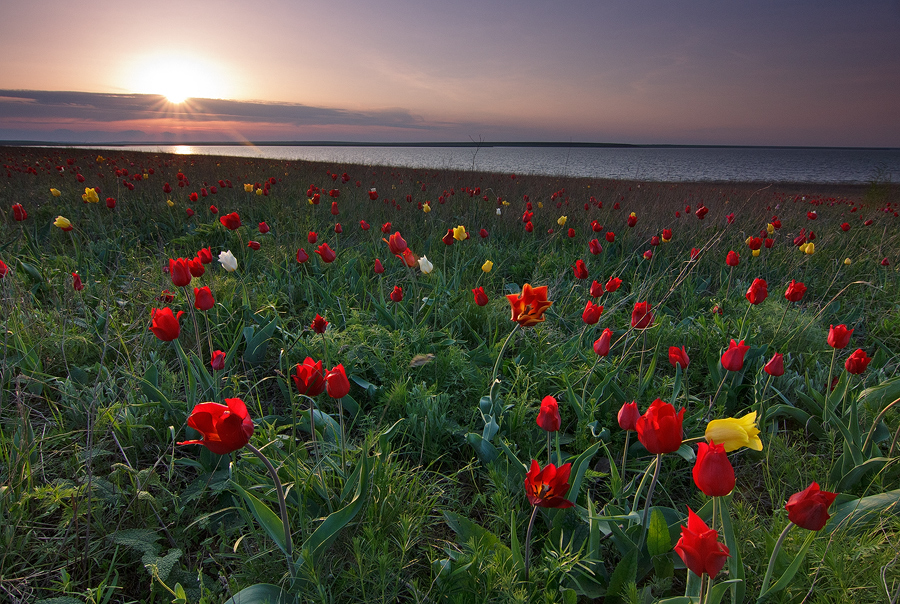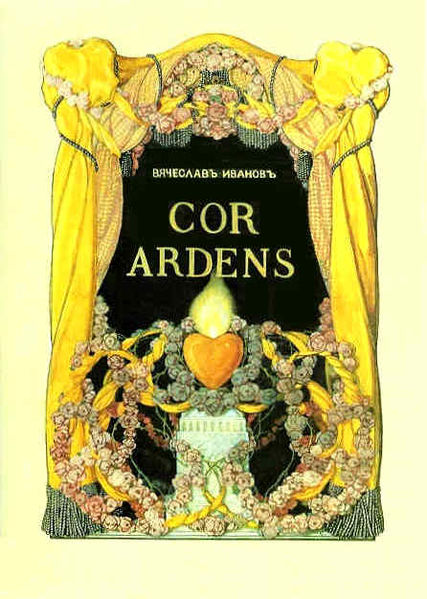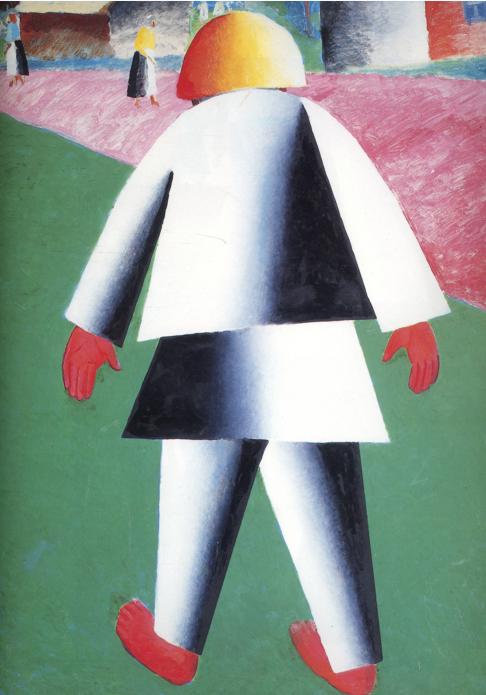|
Zangezi
Zangezi (russian: Зангези), or Zangezi: A Supersaga in 20 Planes, is a futurist poem-play by Russian, later Soviet, poet, writer and scholar Velimir Khlebnikov (born Victor Khlebnikov; Velimir was his pen name). Title and history Zangezi is the name of a prophet in the work, the name being composed from Kalmyk word 'zyange', that in Kalmyk language means "messenger". The name Zangezi had different variants in Velimir Khlebnikov's draft book (which he was ironically calling in German fashion 'Großbuch'): Zengezi, Mangezi, Changezi, Changili (Зенгези, Мангези, Чангези, Чангили). Some critics said the name Zangezi associated with famous rivers Ganges and Zambezi. Other pointed out that Zangezi is name composed from Kalmyk word 'zyange', that in Kalmyk language means 'the messenger'. Velimir Khlebnikov wrote to his friend, fellow futurist poet Vasily Kamensky in 1909, that he had wanted to create a work in which 'every chapter must not have a like ... [...More Info...] [...Related Items...] OR: [Wikipedia] [Google] [Baidu] |
Zaum
Zaum (russian: зáумь) are the linguistic experiments in sound symbolism and language creation of Russian Futurist poets such as Velimir Khlebnikov and Aleksei Kruchenykh. Zaum is a non-referential phonetic entity with its own ontology. The language consists of neologisms that mean nothing. Zaum is a language organized through phonetic analogy and rhythm. Zaum literature cannot contain any onomatopoeia or psychopathological states. Usage Aleksei Kruchenykh created Zaum in order to show that language was indefinite and indeterminate. Kruchenykh stated that when creating Zaum, he decided to forgo grammar and syntax rules. He wanted to convey the disorder of life by introducing disorder into the language. Kruchenykh considered Zaum to be the manifestation of a spontaneous non-codified language. Khelinbov believed that the purpose of Zaum was to find the essential meaning of word roots in consonantal sounds. He believed such knowledge could help create a new universal lang ... [...More Info...] [...Related Items...] OR: [Wikipedia] [Google] [Baidu] |
Velimir Khlebnikov
Viktor Vladimirovich Khlebnikov, better known by the pen name Velimir Khlebnikov ( rus, Велими́р Хле́бников, p=vʲɪlʲɪˈmʲir ˈxlʲɛbnʲɪkəf; – 28 June 1922) was a Russian poet and playwright, a central part of the Russian Futurist movement, but his work and influence stretch far beyond it. Influential linguist Roman Jakobson hailed Khlebnikov as "the greatest world poet of our century". Biography Viktor Vladimirovich Khlebnikov was born in 1885 in Malye Derbety, Astrakhan Governorate, Russian Empire (in present-day Kalmykia). He was of Russian, Armenian and Zaporozhian Cossack descent.James R. Russell, "The Black Dervish of Armenian Futurism," ''Journal of Armenian Studies'', 10 His younger sister, Vera Khlebnikova, was an artist. He moved to Kazan, where he attended school. He then attended school in Saint Petersburg. He eventually quit school to become a full-time writer. His earliest works are from 1908. In 1909-10, he met the to-be Russi ... [...More Info...] [...Related Items...] OR: [Wikipedia] [Google] [Baidu] |
Language And Mysticism
Language is a structured system of communication. The structure of a language is its grammar and the free components are its vocabulary. Languages are the primary means by which humans communicate, and may be conveyed through a variety of methods, including spoken, sign, and written language. Many languages, including the most widely-spoken ones, have writing systems that enable sounds or signs to be recorded for later reactivation. Human language is highly variable between cultures and across time. Human languages have the properties of productivity and displacement, and rely on social convention and learning. Estimates of the number of human languages in the world vary between and . Precise estimates depend on an arbitrary distinction (dichotomy) established between languages and dialects. Natural languages are spoken, signed, or both; however, any language can be encoded into secondary media using auditory, visual, or tactile stimuli – for example, writing, whi ... [...More Info...] [...Related Items...] OR: [Wikipedia] [Google] [Baidu] |
Artistic Languages
An artistic language, or artlang, is a constructed language designed for aesthetic and phonetic pleasure. Language can be artistic to the extent that artists use it as a source of creativity in art, poetry, calligraphy or as a metaphor to address themes as cultural diversity and the vulnerability of the individual in a globalizing world. Unlike engineered languages or International auxiliary language, auxiliary languages, artistic languages often have irregular grammar systems, much like natural languages. Many are designed within the context of fictional worlds, such as J. R. R. Tolkien's Middle-earth. Others can represent fictional languages in a world not patently different from the real world, or have no particular fictional background attached. Genres Several different genres of constructed languages are classified as 'artistic'. An artistic language may fall into any one of the following groups, depending on the aim of its use. Similarly to philosophical languages, artla ... [...More Info...] [...Related Items...] OR: [Wikipedia] [Google] [Baidu] |
Censorship In The Soviet Union
Censorship in the Soviet Union was pervasive and strictly enforced. Censorship was performed in two main directions: * State secrets were handled by the General Directorate for the Protection of State Secrets in the Press (also known as Glavlit), which was in charge of censoring all publications and broadcasting for state secrets *Censorship, in accordance with the official ideology and politics of the Communist Party was performed by several organizations: **Goskomizdat censored all printed matter: fiction, poetry, etc. **Goskino, in charge of cinema ** Gosteleradio, in charge of radio and television broadcasting **The First Department in many agencies and institutions, such as the State Statistical Committee (Goskomstat), was responsible for assuring that state secrets and other sensitive information only reached authorized hands. Destruction of printed matter The Soviet government implemented mass destruction of pre-revolutionary and foreign books and journals from librari ... [...More Info...] [...Related Items...] OR: [Wikipedia] [Google] [Baidu] |
1922 Plays
Nineteen or 19 may refer to: * 19 (number), the natural number following 18 and preceding 20 * one of the years 19 BC, AD 19, 1919, 2019 Films * ''19'' (film), a 2001 Japanese film * ''Nineteen'' (film), a 1987 science fiction film Music * 19 (band), a Japanese pop music duo Albums * ''19'' (Adele album), 2008 * ''19'', a 2003 album by Alsou * ''19'', a 2006 album by Evan Yo * ''19'', a 2018 album by MHD * ''19'', one half of the double album ''63/19'' by Kool A.D. * ''Number Nineteen'', a 1971 album by American jazz pianist Mal Waldron * ''XIX'' (EP), a 2019 EP by 1the9 Songs * "19" (song), a 1985 song by British musician Paul Hardcastle. * "Nineteen", a song by Bad4Good from the 1992 album '' Refugee'' * "Nineteen", a song by Karma to Burn from the 2001 album ''Almost Heathen''. * "Nineteen" (song), a 2007 song by American singer Billy Ray Cyrus. * "Nineteen", a song by Tegan and Sara from the 2007 album '' The Con''. * "XIX" (song), a 2014 song by Slipkn ... [...More Info...] [...Related Items...] OR: [Wikipedia] [Google] [Baidu] |
1922 Poems
Nineteen or 19 may refer to: * 19 (number), the natural number following 18 and preceding 20 * one of the years 19 BC, AD 19, 1919, 2019 Films * ''19'' (film), a 2001 Japanese film * ''Nineteen'' (film), a 1987 science fiction film Music * 19 (band), a Japanese pop music duo Albums * ''19'' (Adele album), 2008 * ''19'', a 2003 album by Alsou * ''19'', a 2006 album by Evan Yo * ''19'', a 2018 album by MHD * ''19'', one half of the double album ''63/19'' by Kool A.D. * ''Number Nineteen'', a 1971 album by American jazz pianist Mal Waldron * ''XIX'' (EP), a 2019 EP by 1the9 Songs * "19" (song), a 1985 song by British musician Paul Hardcastle. * "Nineteen", a song by Bad4Good from the 1992 album '' Refugee'' * "Nineteen", a song by Karma to Burn from the 2001 album ''Almost Heathen ''Almost Heathen'' is the third studio album by the stoner rock band Karma to Burn, released in 2001 via Spitfire Records. It was the last album released before their seven-year disband ... [...More Info...] [...Related Items...] OR: [Wikipedia] [Google] [Baidu] |
Works About Revolutionaries
Works may refer to: People * Caddy Works (1896–1982), American college sports coach * Samuel Works (c. 1781–1868), New York politician Albums * '' ''Works'' (Pink Floyd album)'', a Pink Floyd album from 1983 * ''Works'', a Gary Burton album from 1972 * ''Works'', a Status Quo album from 1983 * ''Works'', a John Abercrombie album from 1991 * ''Works'', a Pat Metheny album from 1994 * ''Works'', an Alan Parson Project album from 2002 * ''Works Volume 1'', a 1977 Emerson, Lake & Palmer album * ''Works Volume 2'', a 1977 Emerson, Lake & Palmer album * '' The Works'', a 1984 Queen album Other uses * Microsoft Works, a collection of office productivity programs created by Microsoft * IBM Works, an office suite for the IBM OS/2 operating system * Mount Works, Victoria Land, Antarctica See also * The Works (other) * Work (other) Work may refer to: * Work (human activity), intentional activity people perform to support themselves, others, or the community ... [...More Info...] [...Related Items...] OR: [Wikipedia] [Google] [Baidu] |
Imaginism
Imaginism was a Russian avant-garde poetic movement that began after the Revolution of 1917. History Imaginism was founded in 1918 in Moscow by a group of poets including Anatoly Marienhof, Vadim Shershenevich, and Sergei Yesenin, who wanted to distance themselves from the Futurists; the name may have been influenced by imagism. Stylistically, they were heirs to Ego-Futurism. Imaginists created poetry based on sequences of arresting and uncommon images. They wrote many verbless poems. Other members of the group were the poets Rurik Ivnev, Alexander Kusikov, Ivan Gruzinov, Matvey Royzman, and the prominent Russian dramatist Nikolay Erdman. In January 1919 they issued a manifesto, whose text was largely written by Shershenevich. Most of the imaginists were freethinkers and atheists. Imaginism had its main centres in Moscow and St. Petersburg. There were also smaller centres of imaginism in Kazan, Saransk, and Ukraine Ukraine ( uk, Україна, Ukraïna, ) is a count ... [...More Info...] [...Related Items...] OR: [Wikipedia] [Google] [Baidu] |
Vyacheslav Ivanov (poet)
Vyacheslav Ivanovich Ivanov (russian: Вячесла́в Ива́нович Ива́нов; – 16 July 1949) was a Russian poet and playwright associated with the Russian Symbolism, Russian Symbolist movement. He was also a philosopher, translator, and literary critic. Early life Born in Moscow, Ivanov graduated from the First Moscow Gymnasium with a gold medal and entered the Moscow University where he studied history and philosophy under Sir Paul Vinogradoff. In 1886, he moved to the Berlin University to study Roman law and economics under Theodor Mommsen. During his stay in Germany, he absorbed the thoughts of Friedrich Nietzsche and German Romantics, notably Novalis and Friedrich Hölderlin. In 1886 Ivanov married Darya Mikhailovna Dmitrievskaya, the sister of his close childhood friend Aleksei Dmitrievsky. From 1892 he studied archaeology in Rome, completing his doctoral dissertation there. In 1893 he met Lydia Zinovieva-Annibal, a poet and translator. Having both rece ... [...More Info...] [...Related Items...] OR: [Wikipedia] [Google] [Baidu] |
Kazimir Malevich
Kazimir Severinovich Malevich ; german: Kasimir Malewitsch; pl, Kazimierz Malewicz; russian: Казими́р Севери́нович Мале́вич ; uk, Казимир Северинович Малевич, translit=Kazymyr Severynovych Malevych ., group=nb (Запись о рождении в метрической книге римско-католического костёла св. Александра в Киеве, 1879 год // ЦГИАК Украины, ф. 1268, оп. 1, д. 26, л. 13об—14. – 15 May 1935) was a ... [...More Info...] [...Related Items...] OR: [Wikipedia] [Google] [Baidu] |


.jpg)



